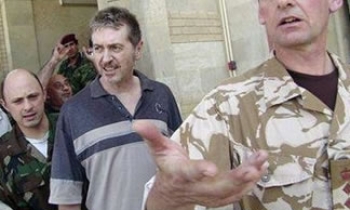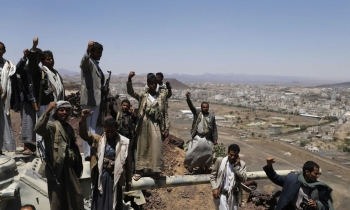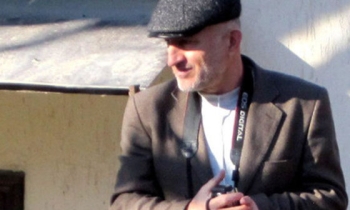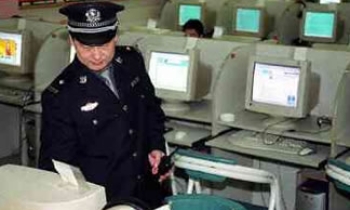Some weeks ago, a journalist investigating a scam in the Assam forest department was brutally murdered. Perpetrators of the crime are obviously part of the loop of crime and sleaze surrounding the department. There is the timber lobby, politicians, bureaucrats and what have you. They are a deadly cocktail by any standards. Following on the heels of this gruesome killing is the attempt on the life of another senior scribe from Manipur. Mediapersons, it appears, are being coerced to conform and comply with the wishes of a wide range of actors, all of whom want to have it their way. How is this going to affect the media in the Northeast?
Sadly, media professionals are so caught up with their duty that they have no time to organise public protests. What is even more distressing is the blasé character of the reading public. Those who eagerly await their morning newspapers prefer to slink away into the darkness of anonymity when journalists are in trouble.
The verdict seems to be that journalists do what they have to do only for themselves. It is difficult to understand why in this country journalists are typified as a specimen that have to fight their own battles, defend their own causes and look after their own security, even while they faithfully cover the struggles of the underdogs day after day.
Two very pernicious forces, both of which want to either gobble up media space or gag the media, afflict Northeast India. The former demand that their statements be reported verbatim. The latter want the media to look the other way while they commit a crime. Both are difficult propositions for any mediaperson worth his salt.
Media’s role
Media reporting is not only about faithfully reproducing government press releases or about espousing the cause of revolutionary groups. It is about investigating and enquiring into those areas that people actually want to keep hidden.
A press release does not mean anything because it tells us only what the author of the release wants us to know. There are other things beyond the release, which the discerning public should know and the task of the media is to actually "pry beyond the headlines".
While sting operations are the order of the day, that task is also making journalists live on the edge of a precipice. Danger lurks behind every investigative journalist doing his job conscientiously. There are very few people in the profession today who are willing to stick their necks out and voice the truth without fear or favour.
If these few courageous journalists are ruthlessly massacred and the murderers are at large, what will become of the profession? This is a question that should actually engage the minds of all those who value freedom of the press.
Security issues
In a region contorted by major scandals and a stockpile of small arms that are available a dime a dozen, media professionals will be coming under the firing line more often than not. They have to report unpleasant truths. There is no running away from that. But in doing so, they put their lives on the line.
Critics will argue that a mediaperson has chosen his profession. The profession has not chosen him. Therefore, they cannot be whining if they have to suffer while in the pursuit of news. But that would be a cruel argument.
Newspapers are not just pages of papers with juicy news in them. Their publication requires a whole team of courageous, hardworking scribes who slog and strive while the world sleeps so that when the world wakes up to a new day, it can have its quota of news.
Journalists are not footloose and fancy free people. There is much hard work, sweat and tears that go into the making of a newspaper. It is, therefore, incumbent upon the reader to try and fully comprehend the larger dimension of the fourth estate. Only then can the media have allies on its side.
By looking for allies one does not imply that the media should lean to the right or left or look for softer options. One is only suggesting that the reading public have as much responsibility to defend the freedom of the press and to continually fight for the space within which this freedom can operate. This is about the only sacred space available in a democracy.
Fire power
If this space were usurped by those with guns or with the power to throttle the voice of truth, there would be no option for the media but to wind up and say goodbye to investigative journalism. That is an option, if it is what the public wants. But whether that is healthy for a democracy is the moot point.
I believe that will lead to a nasty democracy worse than any kind of fascism.
Those who desire to stomp democracy out usually target the media. They dread to read the truth about themselves because this truth threatens to tarnish their "good name". But, conversely, if the truth is hidden under a bushel as it were, it would deprive a large section of people of the opportunity for growth and progress and a healthy living environment.
In Assam today, the tentacles of a vicious timber mafia are devouring every layer of government.
Loss of forest cover endangers the human race. But it hurts especially those living within the environs where the forest cover faces more rapid and extensive depletion.
Can there be a more heinous crime than destroying the green cover? Then why is the public outcry against this crime so muted in Assam? Are people tired of making an issue out of a real cause because there are too many non-issues in the pan? A journalist has sacrificed his life to unearth the truth. Should he have died in vain?
Manipuri scribes
Focussing on Manipur where the situation is desperately fluid and bullets fly thick and fast, certainly it is no joy to be a pen pusher. The risks are all too apparent. Scribes are accident-prone. Yet one must salute these brave souls for their "never say die" attitude. In Manipur, media professionals are not the only ones at risk.
Recently, the deputy commissioner of Ukhrul district was reported to have been threatened by people with vested interests for not complying with their demand. He was allegedly asked to cough up money from some development scheme to people handpicked by a local politician. Strong-arm tactics and the law of thejungle have become Manipur’s raison d’etre. Thankfully, the media fraternity of Manipur is a cohesive unit. They have to be united in order to survive. However, in a climate that is life threatening and getting riskier by the day, the fraternal cohesion of one state is not good enough.
A Northeast journalists’ forum that takes cognisance of issues other than bread and butter needs to be put in place. The united voice of journalists from this region must combine with those of others in Kashmir and the rest of the free world. Only then will the space for free speech be guarded.









